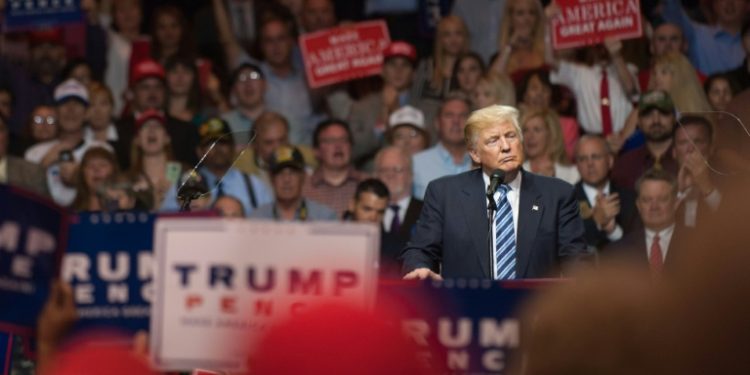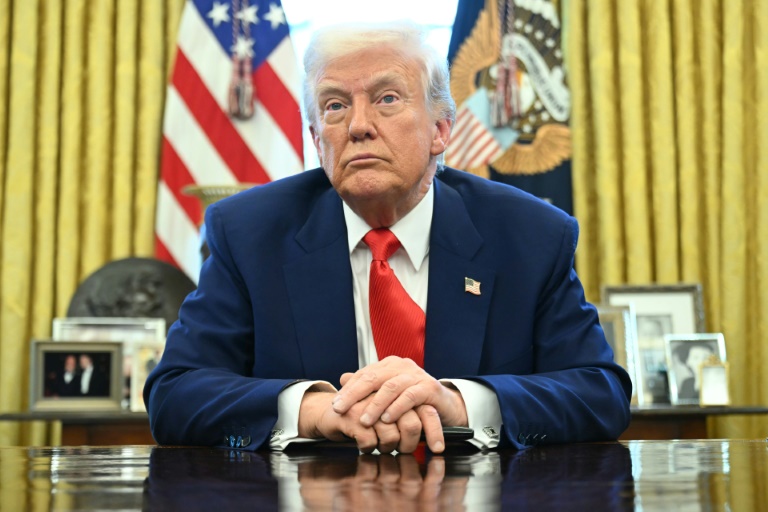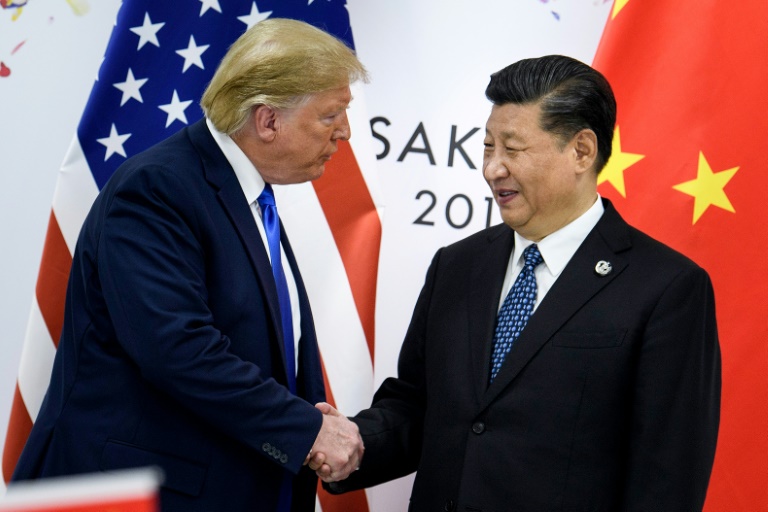Washington (AFP) – President-elect Donald Trump’s new Treasury chief needs to hit the ground running once he takes office, tasked with rolling out his boss’s economic vision and grappling with the country’s debt limit. If confirmed, hedge fund manager Scott Bessent, who was named by Trump on Friday, will have to usher through promised tax cuts, advise on an agenda promising sweeping tariffs, and confront the world’s biggest economy’s ballooning debt.
What immediate issues will he face?
– Economic agenda –
One pressing concern for Bessent will be “how to navigate a desire for more protectionism while avoiding a global trade war,” EY chief economist Gregory Daco told AFP. Trump has vowed across-the-board tariffs of at least 10 percent on all imports and steeper levies on China, although it remains to be seen how he will do so. His Treasury secretary would likely have to ensure that trade policies “allow for a negotiation between trading partners without doing excessive damage to the economy, sparking inflationary pressures,” Daco said. A key question is whether the candidate proves to be a “cheerleader and defender” of Trump’s tariffs or a “moderating force” compared to more aggressive proponents, said David Wessel, a senior fellow in economic studies at Brookings.
– Debt ceiling –
The Treasury will also have to ensure the country keeps paying its bills amid talks to raise the debt ceiling. The lifting of the debt ceiling, a limit on government borrowing to pay for bills already incurred, has in recent years become a contentious partisan issue. The limit suspension technically expires in January, and outgoing Treasury Secretary Janet Yellen will likely make initial moves to avoid defaulting on the country’s obligations. The new administration will have to continue such measures.
With Republicans having control in the White House and Congress, analysts expect the debt ceiling will be raised. But some lawmakers may want concessions for doing so, and the Treasury chief will be important in negotiating the tradeoffs, Wessel said. “This will be the first time in the modern history of the debt limit that there will be a change in administration during a debt limit episode,” said Shai Akabas, executive director at the Bipartisan Policy Center’s economic policy program.
– Tax cuts –
Trump’s budget, to be presented in early 2025, will likely be his government’s starting point when it comes to tax relief and spending cuts, Wessel noted. With economic dissatisfaction being a key factor in the election outcome, tax cut extensions are set to be high among the Treasury secretary’s priorities. But the challenge is rolling out policies while maintaining the US economy on a sustainable debt trajectory. “It’s going to be a very delicate job,” said Daco. “Everything and anything on the menu has been ordered during the campaign.” These include tax cuts for households and businesses, alongside a reduction in taxes on tips, or potentially greater spending on energy.
– Interest costs –
By the Committee for a Responsible Federal Budget’s estimates, however, Trump’s agenda could add around $8 trillion to the national debt. “Debt held by the public now stands at $28.6 trillion, or nearly 100 percent of gross domestic product (GDP), and it is growing at an unsustainable rate,” said Akabas. “If we don’t find a way to stop digging, the Treasury secretary may have to confront the debt burden’s pernicious consequences,” he added. These could mean higher interest rates on US debt or elevated rates for consumer debt. The country could also face credit rating agency downgrades or financial market reactions, he said. “This could erode global faith in the US as an economic leader and adversely affect our future growth,” he added.
© 2024 AFP





















